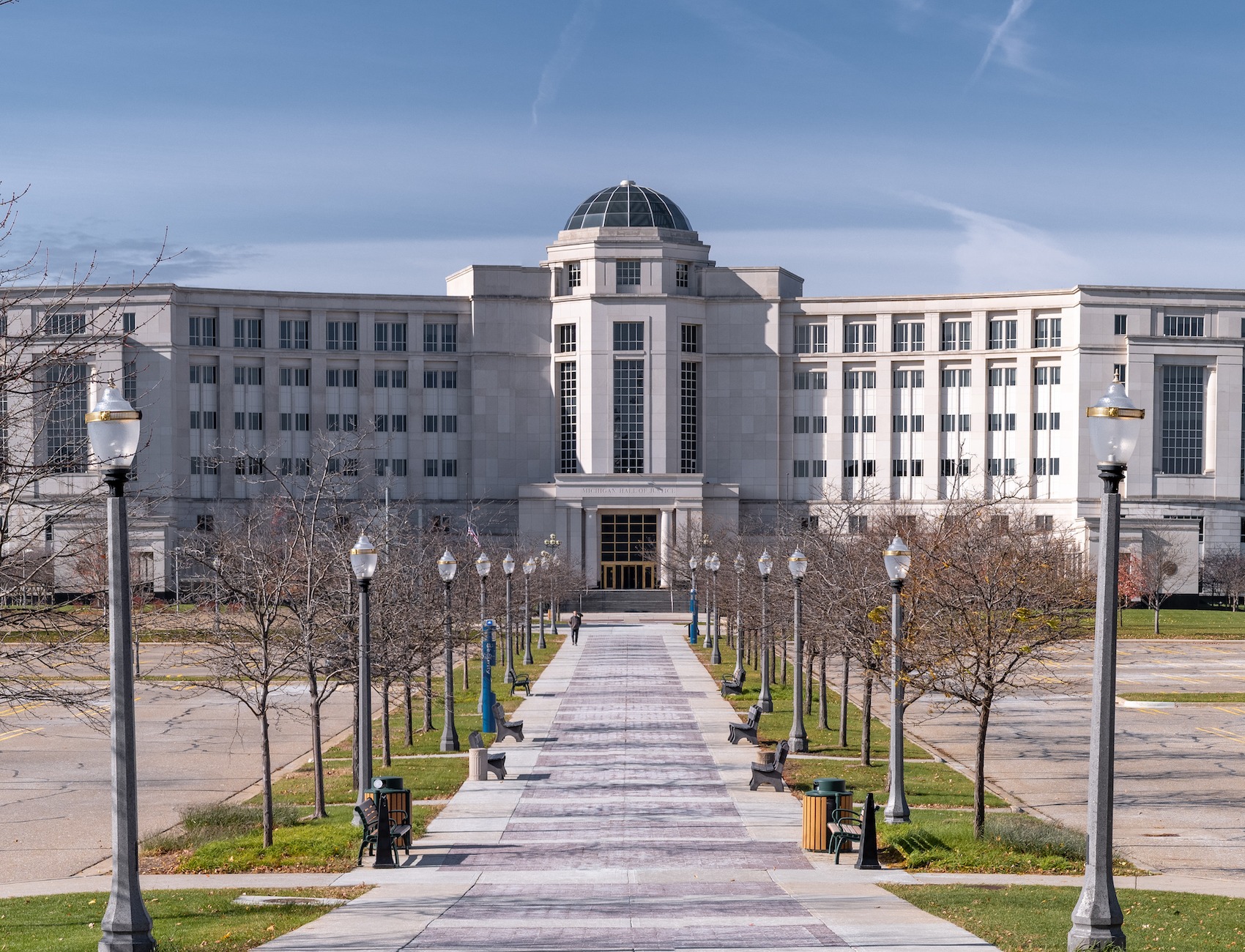Michigan Supreme Court Flips to Democrats
The ideological change is a boon for the left, as states prepare for redistricting in 2021 and the challenges that may come with it.

Liberals in Michigan claimed victory in swinging the ideological makeup of the state supreme court.
Republicans held a 4-3 majority going into this week’s election. Democrats were able to flip that advantage with Chief Justice Bridget Mary McCormack, a Democrat, who held on to her seat, and Democrat Elizabeth Welch, who captured the seat currently held by Stephen Markman, a Republican.
Although supreme court justice candidates can be affiliated with a political party, their names appear on the Michigan ballot without that affiliation.
Markman, who is 71, was barred from running for reelection because state law prohibits any person age 70 or over from being elected or appointed as a judge.
Because the state will redraw its districts in 2021, advocates say control of the court will be pivotal to future political battles.
“It’s true that judges are interpreting the law, but their assessment about the world in which we live, the underlying facts on the ground and different competing principles that animate or are relevant to our government often vary by ideology,” said Leah Litman, an assistant professor at the University of Michigan Law School and a host of the podcast “Strict Scrutiny,” a project of The Appeal.
In Ohio, where partisan control of the state Supreme Court was also in play, one Republican justice was able to thwart her challenge from Democrat John P. O’Donnell to maintain a majority on the court. Democrat Jennifer Brunner did oust incumbent Judith French, leaving Republicans with a 4-3 majority.
Democrats needed to pick up both seats to flip the court.
Justices for the Ohio Supreme Court serve six-year terms and justices in Michigan serve for eight years.
Republicans have enjoyed a heavily gerrymandered congressional map in Ohio over the last decade. Even though President Barack Obama won the state in 2012, he only carried four of its 16 congressional districts.
Last year, federal courts separately ordered that Ohio and Michigan redraw their district lines because they had been illegally gerrymandered in favor of Republicans. “The bottom line is that the dominant party in state government manipulated district lines in an attempt to control electoral outcomes and thus direct the political ideology of [Ohio’s] congressional delegation,’’ a three-judge panel for the federal District Court for the Southern District of Ohio Western Division wrote in its opinion. In May 2019, however, the U.S. Supreme Court put the lower courts’ rulings on hold.
It’s unclear how much fairer the next decade’s map will be. In 2018, voters in Ohio overwhelmingly approved a new, bipartisan plan to draw congressional districts before the 2022 midterms. The new plan encourages bipartisan agreement to adopt a new congressional map, but if the two sides cannot agree, the Republican Party may still end up empowered to push through a plan to its liking.
The liberal shift in Michigan could mean more rulings that could expand or preserve voting rights, reduce gerrymandering, and protect the powers the executive branch has in responding to emergencies, Litman said.
In a 4-3 ruling in October, for example, the Michigan Supreme Court struck down efforts, by Governor Gretchen Whitmer to extend her emergency powers and issue orders to mitigate the spread of COVID-19, including new waiting room procedures for healthcare facilities, requirements that doctors offices provide special hours for high-risk patients, and expanded telemedicine and telehealth procedures.
“We all understand how important the U.S. Supreme Court is,” said Litman, “and one reason why the importance of the U.S. Supreme Court is in some ways dangerous is because we don’t have a say in who the justices are.”
Supreme Courts in states like Michigan and Ohio, Litman said, are different. “You have the opportunity to select the justices who will be making the law for your state on incredibly important issues ranging from voting rights, democracy, criminal justice—it just runs the entire gamut. It’s really important to have a say who the people who are making laws in your state are.”
